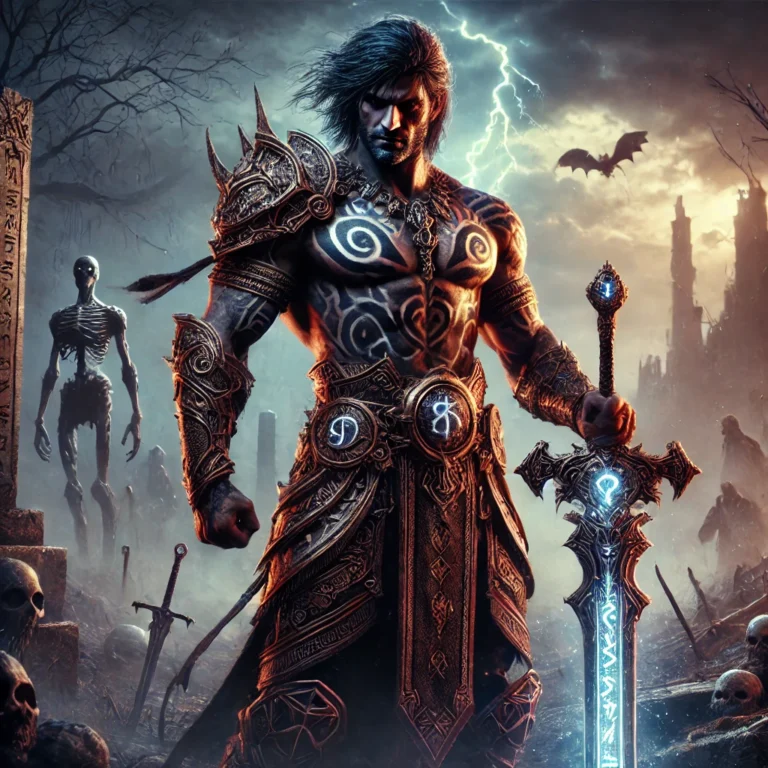Introduction
In the ever-evolving realm of entertainment and storytelling, certain concepts and ideas captivate audiences with their intensity and thought-provoking narratives. One such intriguing theme is suicide battle god, a term that conjures images of epic struggles, existential dilemmas, and the ultimate sacrifice. This concept weaves together elements of mythology, action, and deeply emotional storytelling, offering audiences a powerful blend of adrenaline and introspection.
Exploring the Concept of Suicide Battle God
The phrase suicide battle god suggests a character or entity that embodies both divine power and a willingness to sacrifice themselves in battle. This archetype is often depicted in stories where the stakes are unimaginably high, and the fate of entire worlds or civilizations hangs in the balance. The “suicide” aspect doesn’t merely denote an end; it symbolizes the ultimate act of heroism, where the protagonist chooses self-sacrifice for a greater cause.
In modern media, this concept often resonates with audiences because it encapsulates the human condition’s complexities. It touches on themes of duty, courage, and the delicate balance between life and death. Whether in films, literature, or video games, suicide battle god narratives challenge us to consider what we would be willing to give up for the greater good.
Why Suicide Battle God Captivates Audiences
The allure of the suicide battle god lies in its dramatic tension and emotional depth. This archetype allows creators to explore the duality of power and vulnerability. On one hand, the god-like figure possesses immense strength and capability, often appearing invincible. On the other hand, their ultimate decision to embrace mortality makes them relatable and deeply human.
Audiences connect with these stories because they mirror real-life struggles. Sacrifices, whether big or small, are a part of the human experience. The suicide battle god concept elevates this idea to a mythic level, inspiring viewers to reflect on their values and priorities. It also delivers action-packed narratives that keep audiences on the edge of their seats, blending entertainment with profound philosophical questions.
Representation in Modern Media
The suicide battle god theme has found its way into various forms of media, each offering a unique interpretation. In movies, we see characters like superheroes or warriors making the ultimate sacrifice to save the world. These stories often culminate in climactic battles where the hero’s death becomes a turning point for the narrative, symbolizing hope, redemption, or the defeat of evil.
In video games, this concept takes on an interactive dimension. Players often take on the role of a suicide battle god, making choices that impact the storyline. These games immerse players in a world where every decision matters, heightening the emotional stakes and creating unforgettable experiences.
Books and graphic novels also explore this theme, delving deeper into the psyche of characters who grapple with their god-like powers and the burden of responsibility. These mediums allow for nuanced storytelling, offering readers a chance to explore the inner conflicts and motivations of these extraordinary figures.
The Philosophical Undertones of Suicide Battle God
At its core, the suicide battle god archetype serves as a metaphor for the human struggle between self-interest and altruism. It raises profound questions: What are we willing to sacrifice for the ones we love? How do we reconcile our desire for immortality with the inevitability of death? These stories provide a lens through which we can examine our own lives and values.
The “god” aspect of the archetype often symbolizes power and privilege. The choice to sacrifice oneself, despite having the ability to avoid it, underscores the weight of true heroism. It challenges the notion that power is synonymous with invulnerability, suggesting instead that true strength lies in vulnerability and selflessness.
Why the Suicide Battle God Archetype Matters
In a world where individualism often takes center stage, the suicide battle god archetype reminds us of the importance of collective well-being. These stories celebrate the act of putting others first, even at great personal cost. They inspire audiences to think beyond themselves and consider the impact of their actions on the larger community.
Moreover, the emotional resonance of these narratives helps build empathy. By immersing ourselves in the struggles of these characters, we gain a deeper understanding of the complexities of sacrifice and the courage it demands. This connection fosters a sense of shared humanity, bridging the gap between fictional heroes and real-life challenges.
Crafting a Narrative Around Suicide Battle God
If you’re a creator looking to explore the suicide battle god theme, the possibilities are endless. Start by defining your character’s motivations and the stakes involved. Why are they willing to make the ultimate sacrifice? What is at risk, and how does their decision impact the world around them?
The narrative should balance action and emotion, ensuring that the character’s journey resonates with audiences on multiple levels. Incorporate moments of introspection and dialogue that reveal their inner conflicts. At the same time, deliver high-stakes battles and visually stunning sequences that highlight their god-like powers.
Ultimately, the story should leave audiences with a sense of hope and inspiration. While the suicide battle god may meet their end, their sacrifice should pave the way for a brighter future, underscoring the enduring power of selflessness and courage.
Conclusion
The concept of suicide battle god continues to captivate audiences with its powerful blend of action, emotion, and philosophical depth. It challenges us to consider what it truly means to be heroic, emphasizing the value of sacrifice and the strength found in vulnerability. Whether through films, books, or games, this archetype resonates deeply, reminding us of the enduring power of storytelling to inspire and transform.for blog visit our site scooparticle

